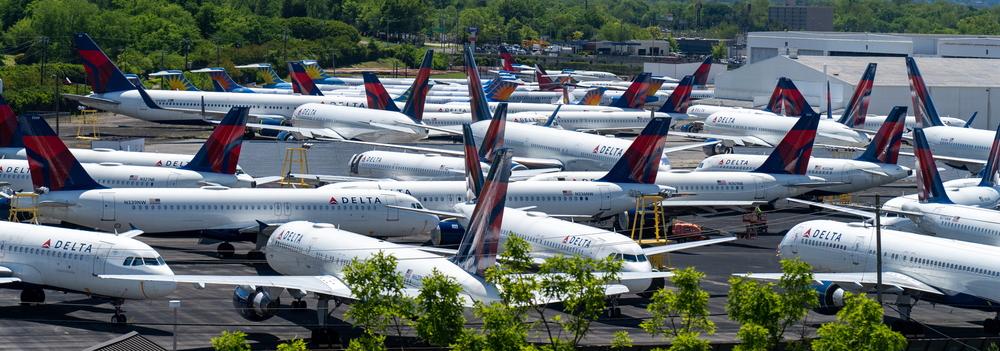
Aviation industry panelists testifying before a U.S Senate committee on Wednesday met with some resistance from lawmakers over their actions during the COVID-19 pandemic and projections of what the future holds.
Testifying before the Senate Committee on Commerce, Science, and Transportation, representatives from the airline industry, aerospace manufacturing industry and the airport industry, along with a public health professor, spoke at length about how vital the airline and airport industries are to the success of the American economy.
But some lawmakers riled at the panelists for what they perceive as disingenuous actions on the part of the airlines.
U.S. Sen. Richard Blumenthal (D-CT) questioned airlines’ policies regarding not giving refunds for tickets on flights passengers are no longer willing to take for health reasons. Blumenthal pointed to recent stories from The Wall Street Journal, NPR and other sources that say airlines are refusing to give refunds to passengers, offering them vouchers instead.
“The articles document what we’re hearing from our constituents – voucher of questionable value, no refunds. They feel betrayed,” Blumenthal said. “The airline industry received more than $25 billion in taxpayer money as part of the CARES Act … and yet the airlines would mislead and deceive the very taxpayers whose money they received. I think you come to this committee with a history of bumping passengers, multiplying seats, taking tax breaks and using them for stock buybacks and executive compensation, and now you’re saying you need more money…”
As U.S. Sen. Roger Wicker (R-MS), chairman of the committee, detailed in his opening statement, the Coronavirus Aid, Relief, and Economic Security (CARES) Act included $32 billion in payroll support assistance for air carriers and contractors. In addition, recognizing the need for liquidity, the CARES Act also included $29 billion in loans within the Treasury’s Economic Stabilization Fund for air carriers, aviation repair stations, and ticket agents. The CARES Act also injected $10 billion into the nation’s airports to help them maintain operations and service debts, Wicker noted.
Nicholas Calio, president and CEO of Airlines for America, said airlines are giving refunds as directed to do by law, but that at present, the airline industry is losing more money than it’s making.
“Our refunds are exceeding our revenues,” Calio said.
He estimated the industry was losing between $350 million and $400 million per day.
The industry, he said, has in a few short weeks gone from “the Golden Age of Aviation” to almost nothing. American Airlines, he said, was flying more than 2.5 million passengers and shipping 58,000 tons of cargo every day prior to the pandemic’s impact. Now, he said, the industry is on target to see fewer passengers fly during the entire month of May 2020 than flew in a single day in May 2019.
Other senators asked about how the airline industry and airports could make flying safe again for the American public.
Todd Hauptli, president and CEO of the American Association of Airport Executives, said airports at this time are going through a thorough deep cleaning and working to provide ways passengers can travel in a new touchless world.
“You’re going to see thermal cameras. You’re going to see plexiglass in place. You’re going to see social distancing,” Hauptli said. “It’s going to be a very different travel experience and it’s going to cost billions of dollars.”
Panelist Dr. Hilary Godwin, dean of the School of Public Health at the University of Washington said airlines need to ramp up the contact information they keep on customers in order to help health departments with contact tracing.
“The latest reports suggest that airlines are getting 56 percent of passengers’ email addresses and 75 percent of passengers; phone numbers,” she said. “This information needs to be more complete and be gathered more consistently and it needs to be readily available to local health department jurisdictions. The challenge is that contact tracing is left to local jurisdictions, and they need to be able to have access to that information when they are alerting those who may have come into contact with someone who was infected.”
Calio said that isn’t the airlines’ responsibility.
“We don’t have the ability to check and see if that information is accurate,” he said. “That should be handled by the government. Could we do it, yes, but it would be 12 to 14 months from now, so it likely wouldn’t apply to this pandemic.”
But Eric Fanning, president and CEO of the Aerospace Industries Association, said that supporting airlines and airports is a major part of the country’s economic recovery, but that the industry may need additional funding past what it was given in the CARES Act.
“Temporary and targeted assistance for the ailing aviation manufacturing sector is also something we respectfully request Congress to consider. There is strong support in our industry for a private-public partnership to protect jobs and keep at-risk employees on the payroll through the pandemic. This proposal will require eligible companies to provide significant investment to sustain payroll – with government supplementing a portion of the cost as well,” Fanning said in his testimony.
“We recognize that there are no simple solutions and additional relief is no small ask. But our country – and our industry – is known for overcoming large challenges. On a level playing field, the A&D industry is one of the biggest drivers of American innovation and economic growth, so we know we are in a unique position to help lead our country’s recovery,” Fanning added.